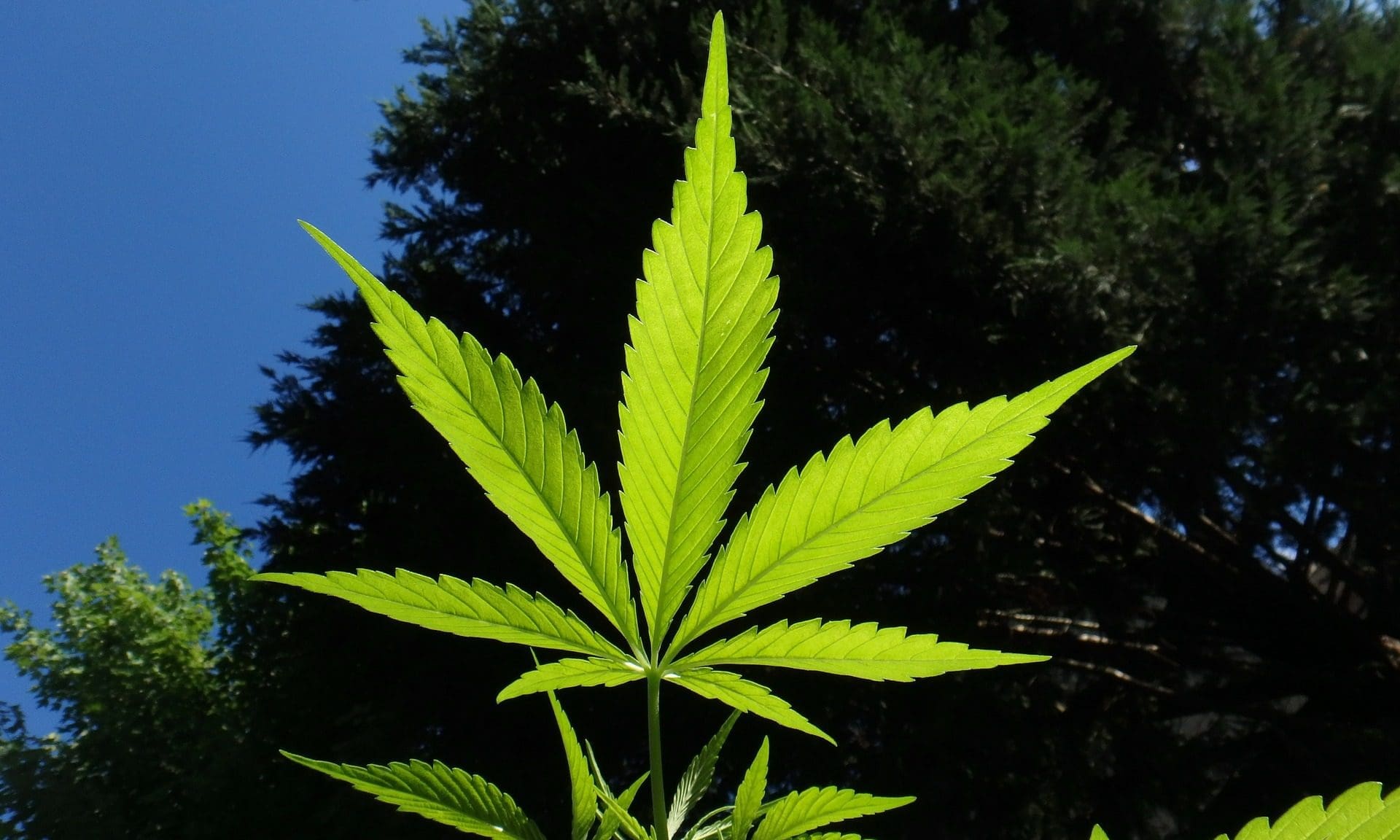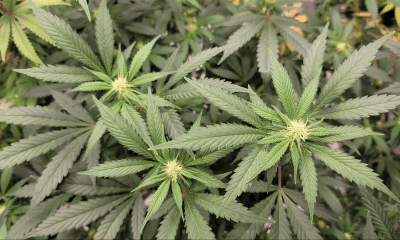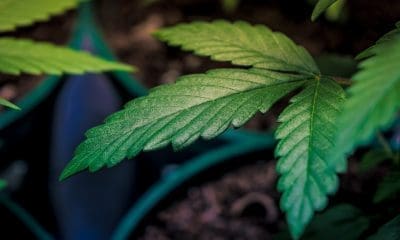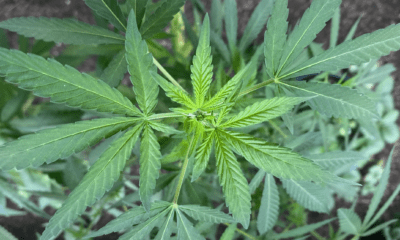Politics
Virginia Marijuana Bills On Governor’s Desk Include Legal Sales, Sentencing Relief, Employment Protections And Parental Rights

Virginia’s Democrat-led legislature passed a number of marijuana-related bills in recent weeks, sending the proposals to Republican Gov. Glenn Youngkin, who has been cagey about embracing reform despite the commonwealth’s adoption of a law legalizing use, possession and home cultivation of cannabis in 2021.
Among the legislatively approved measures are plans to legalize retail cannabis sales and resentence people incarcerated for past cannabis crimes—both of which passed on mostly party-line votes—as well as a more broadly supported measure that would prevent the state from using marijuana alone as evidence of child abuse or neglect.
Here’s a roundup of the major cannabis measures sent to Youngkin’s desk this session. The governor can choose to sign the measures, veto them, allow them to become law without his signature or send them back to lawmakers with requested amendments:
Retail Sales
Use, possession and limited cultivation of cannabis by adults is already legal in Virginia, the result of a Democrat-led proposal approved by lawmakers in 2021. But there’s nowhere for adults to legally buy the drug. Illicit stores have thus sprung up to meet consumer demand, with some estimates valuing the unregulated market at roughly $3 billion.
After months of negotiations on issues such as licensing, social equity, taxes and even whether cannabis plants should be able to be grown outdoors, Democratic lawmakers this session arrived at a compromise bill that would allow retail sales to begin on May 1, 2025. Late last month they passed the legislation on thin margins, with barely any Republican votes.
The question now is whether Youngkin will let the measure take effect. For months, lawmakers working to pass a legal sales bill have said they’ve received little or no response from Youngkin’s office despite efforts to reach out and see what the governor might be open to. And since the legislature’s passage of the bill, the governor has remained mum. In an email last week to Marijuana Moment, the governor’s press secretary pointed to Youngkin’s comments earlier this year in which “he said he doesn’t have a lot of interest in pressing forward with marijuana legalization.”
Parental Rights
Legislation to protect parents and guardians who use marijuana was introduced in both chambers this session—SB 115 in the Senate and HB 833 in the House—and won bipartisan support in key floor votes. Notably, votes of the full Senate were unanimously or near-unanimously in support.
If it becomes law, the proposal would prevent the use of marijuana alone from being considered evidence of child abuse or neglect. It would further provide that drug testing in child custody and visitation matters “shall exclude testing for any substance permitted for lawful use by an adult” under the state’s alcohol, cannabis and drug laws. A person’s “lawful possession or consumption” of those substances, it says, “shall not serve as a basis to restrict custody or visitation unless other facts establish that such possession or consumption is not in the best interest of the child.”
Advocates say they’ve received numerous calls and emails since legalization about cases in which a parent or guardian’s status as a medical marijuana patient had been used to withhold custody or visitation rights.
As with other issues around marijuana, the governor hasn’t clearly said where he stands on the bill. However given the broad bipartisan support in the Senate and advocates’ effort to incorporate feedback from the governor’s office last year, advocates believe it’s among the more likely cannabis-related measures to win his acceptance.
Unlike the other marijuana proposals this session, the parental rights measure was passed in a manner that gives Youngkin only seven days to review and decide on the bill. That means his office will need to weigh in by this weekend.
Resentencing
Hundreds of people in Virginia are still incarcerated on marijuana charges despite the commonwealth’s legalization of the drug. SB 696, from Sen. Angelia Williams Graves (D), would help many of those individuals by providing resentencing relief for most marijuana crimes, not including violent felonies.
Should the legislation become law, many criminal cases would need to be resentenced by the end of the year. People whose sentences for other crimes were enhanced because of a prior marijuana conviction, meanwhile, would receive hearings by April 1, 2025. While most cases would be automatic, some people with convictions would need to petition a court for relief.
A variety of civil rights and justice groups support the measure, including Virginia NAACP, NORML, Marijuana Justice, Rise for Youth, the Last Prisoner Project and Nolef Turns.
“As the state stands to make billions of dollars off a plant that probably should never have never been criminalized, we have to start looking at the people,” Sheba Williams, the founder and executive director of Nolef Turns as well as a board member for Virginia NORML, told Marijuana Moment this week. “A lot of us have worked a long time to address this.”
Though Youngkin has given no indication of where he stands on the issue, Williams and other advocates have pledged to take up the reform again next session if the governor stands in the way of this year’s bill.
Public Employee Protection
HB 149, from Del. Dan Helmer (D), would allow public-sector employees to use medical marijuana without fear of losing their jobs. It extends protections already granted to private employees through an earlier bill that was passed in 2021. That legislation “unintentionally did not protect public-sector employees,” Helmer has said.
Employees such as firefighters, police officers and teachers who use cannabis to treat medical conditions or diseases would be protected under the bill, which received bipartisan support among lawmakers.
Joe Mirabile, a representative of Virginia’s Professional Firefighters, spoke in favor of the proposal during a committee hearing, noting the benefits members have attributed to marijuana.
“My members have reported that they’re relying on alcohol far less, they’re sleeping more at home and they’re seeing other positive effects, such as reduction of joint and muscle pain without having to use opioid prescriptions,” Mirabile said.
Other Legislation
A number of other cannabis-related bills saw action this session, according to Cardinal News.
HB 452, from Del. Katrina Callsen (D), for example, would undo a provision that prevents people with past convictions for simple marijuana possession from entering first-time drug offender programs. That measure, now headed to the governor’s desk, passed the Senate unanimously and even picked up a few Republican votes in the House.
A Republican-led proposal, meanwhile—HB 815 from Del. Mike Cherry—would increase the maximum allowable expiration date for cannabis products to 12 months. That measure passed both chambers on bipartisan votes.
A few other marijuana proposals, Cardinal News reports, were either continued to next year or never acted upon at all this session, including a criminal justice bill related to marijuana penalties (HB 773) and a Republican-led measure (HB 448) that would have set a presumptive DUI limit of 0.004 milligrams of delta-9 THC per liter of blood.
Another Republican-sponsored bill, HB 1485, which would have increased the allowable concentration of THC in industrial hemp to 1 percent, was defeated outright in a 12–10 House committee vote.
















